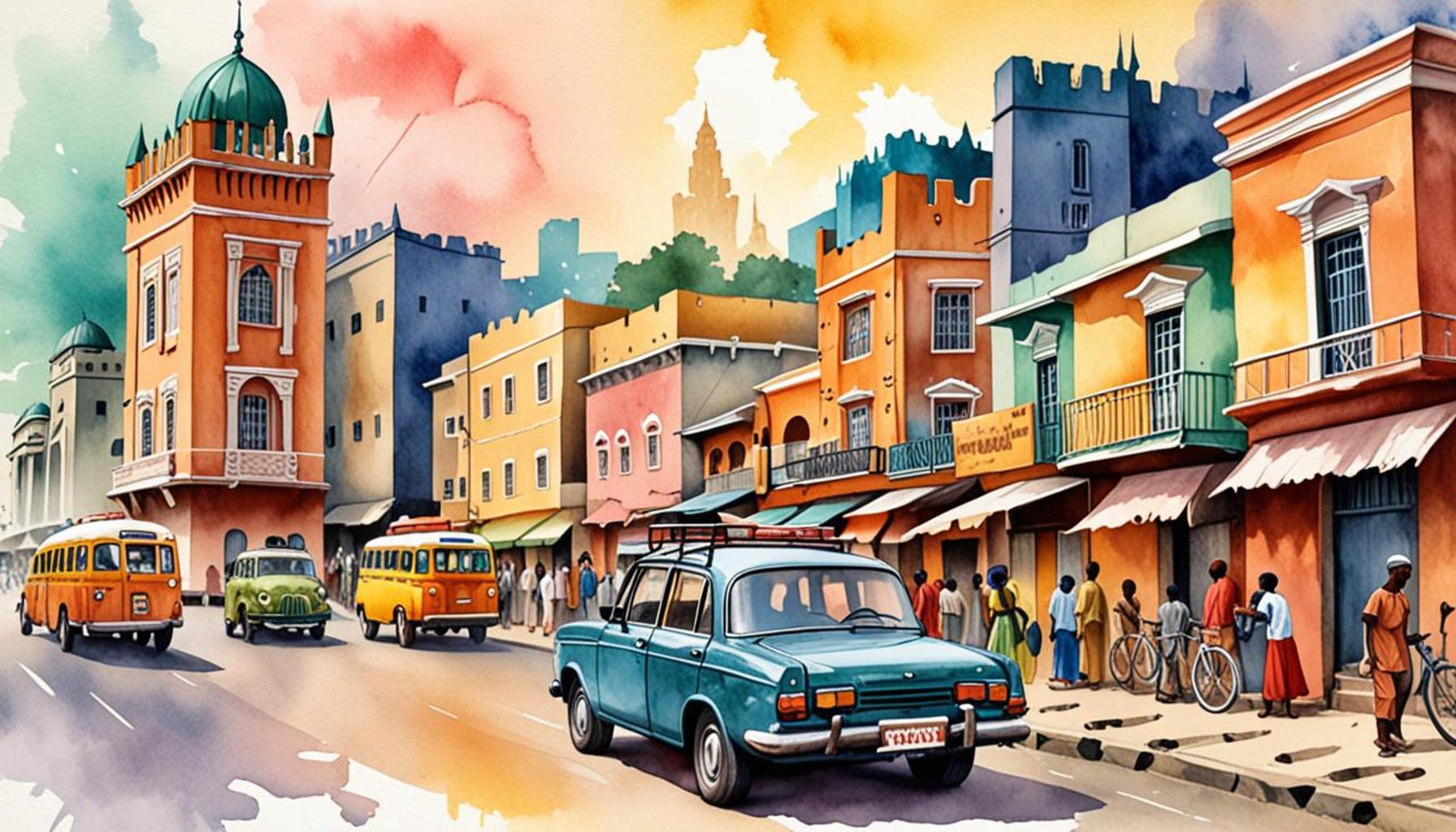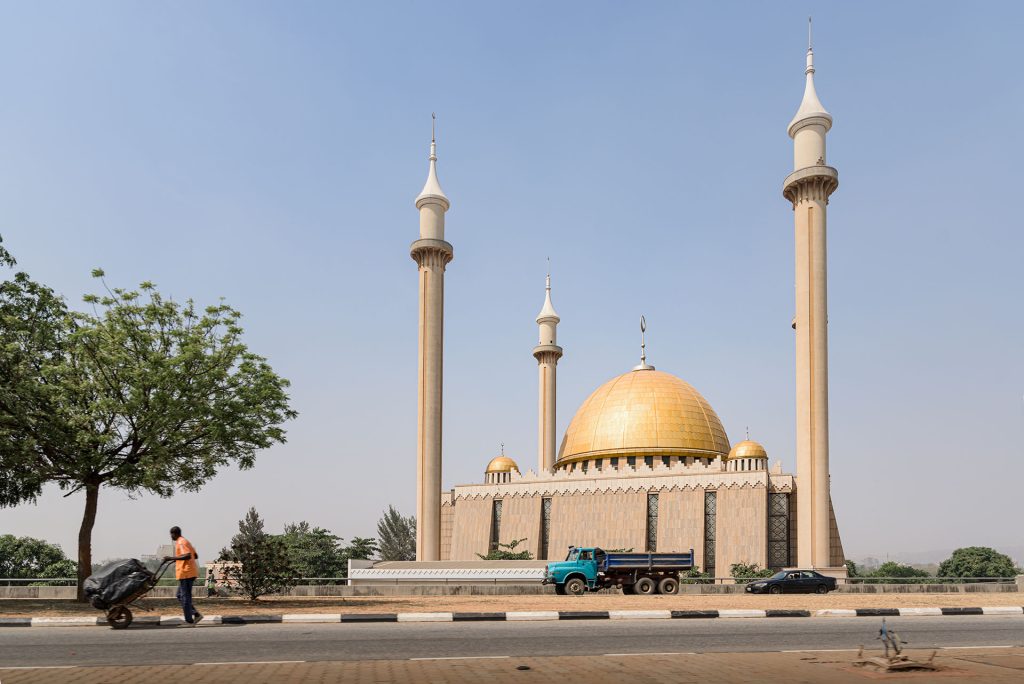Explore Nigerias Historic Cities Unforgettable Cultural Experiences

In a country rich with history and diverse cultural heritage, Nigeria’s historic cities offer travelers a captivating glimpse into its past. Each city tells a unique story through its architecture, customs, and daily life, making them essential stops on any cultural itinerary. As global tourism continues to rise, exploring these historic cities has become increasingly relevant for those seeking authentic experiences.
From ancient kingdoms to colonial influences, Nigeria’s cities are alive with traditions that reflect the nation’s vibrant tapestry. They invite visitors to immerse themselves in the local way of life, from traditional ceremonies to bustling markets. In this article, we will guide you through a curated list of the Top 5 historic cities in Nigeria that promise unforgettable cultural experiences.
- Discover stunning architecture in the capital.
- Engage with rich traditions and local festivals.
- Explore significant historical landmarks.
- Savor the local cuisine that tells a story of its own.
- Visit museums that celebrate Nigeria’s unique heritage.
Get ready to embark on a journey that not only highlights the historical significance of these cities but also emphasizes the importance of preserving their legacies for future generations.
Top 5 Historical Cities in Nigeria: Tourist Itineraries for Unforgettable Cultural Experiences
Nigeria, known for its vibrant tapestry of cultures and rich historical heritage, presents a remarkable opportunity for travelers to delve into the diverse narratives of its past. Exploring its historical cities allows tourists to engage deeply with both the ancient and recent histories of this West African nation. From towering rock formations to ancient trade routes, Nigeria’s cities offer unique stories, stunning architecture, and fascinating traditions. Here, we explore the top five historical cities in Nigeria, each promising incredible cultural experiences that are sure to captivate the inquisitive traveler.
5. Abeokuta: The Rock City
Located in the southwestern region of Nigeria, Abeokuta stands out as the “Rock City,” thanks to the iconic Olumo Rock. This majestic landmark, a symbol of strength and resistance, served as a fortress for the Egba people during the 19th century, offering protection against external threats. For adventure enthusiasts, a hike up Olumo Rock is a must. The summit reveals breathtaking views of the city, blending natural beauty with historical significance.

But Abeokuta is more than its famous rock. The vibrant Itoko Market gives insight into local life, where artisans sell handwoven fabric, intricate beadwork, and traditional Nigerian delicacies. Don’t miss the Abeokuta Museum, which houses a rich collection of Yoruba artifacts, including ceremonial masks and textiles that tell the story of the region’s profound cultural heritage. Visitors often find themselves enchanted by the Egba people’s cultural performances, a vivid reminder of Nigeria’s diverse traditions.
4. Kano: The Ancient Trade City
As one of the oldest cities in West Africa, Kano has long been a nexus of commerce, serving as a pivotal point along the trans-Saharan trade routes. This ancient city captures Nigeria’s Islamic heritage through its stunning mosques and bustling marketplaces. The magnificent Kano Emir’s Palace offers a glimpse into the opulence and history of the region’s traditional royal practices.
Explore the storied Kano City Wall, an enduring testament to the city’s historical significance and defense systems. Within these walls lies a treasure trove of traditional crafts. The famous Kurmi Market allows visitors to purchase traditional goods like leatherwork, pottery, and vibrant indigo-dyed fabric. For an educational experience, guided tours reveal the enchanting history behind Kano’s role in the 14th-century gold and salt trade, offering narratives that enrich the cultural understanding of this timeless city.
Kano’s Diverse Cultural Offerings
Kano is not just about history; the city is a contemporary hub of cultural activities. The annual Durbar festival is an explosion of color and sound, as horsemen parade in spectacular regalia, celebrating the end of Ramadan and commemorating the Eid al-Fitr festival. This event, filled with music and dance, epitomizes the vibrant spirit of Kano.
3. Enugu: The Coal City of Nigeria
Known as the “Coal City,” Enugu is deeply tied to Nigeria’s colonial history, centered on the coal industry. However, there’s more to Enugu than its mining legacy. The Ogbete Main Market is a bustling setting where visitors can savor traditional Igbo foods while shopping for unique handicrafts.
Enugu’s natural attractions complement its rich historical narrative. The serene Ngwo Pine Forest is ideal for nature walks, while the Awhum Waterfall adds an element of adventure to any tour. These sites offer not just relaxation but also an opportunity to appreciate the environmental beauty of Nigeria. At the Enugu Golf Club, history buffs and sport enthusiasts alike can indulge in an elegant game, surrounded by lush landscapes.
Guided tours in Enugu provide a comprehensive view of its colonial past and ongoing cultural resurgence. The interplay of historic sites and natural beauty makes Enugu a complete package for visitors seeking both education and recreation.
2. Ibadan: The Cultural Capital
Ibadan, one of Africa’s largest cities, is often regarded as Nigeria’s cultural capital. This city encapsulates a blend of historic landmarks and vibrant modernity. The University of Ibadan, Nigeria’s first, stands as a beacon of education and history, offering insights into the country’s academic achievements.
Explore the historical Mapo Hall, a colonial relic that hosts various cultural and governmental events. Additionally, the bustling Bodija Market provides a vivid experience of local commerce, where visitors can purchase local produce and textiles, central to Nigerian identity.
Festivals and Heritage
Ibadan is also known for its vibrant cultural festivals. Throughout the year, the city hosts celebrations that highlight the distinct aspects of Yoruba culture, music, and dance. These events, infused with traditions passed down through generations, provide an immersive experience for visitors, showcasing the community’s enduring spirit.
1. Lagos: The Urban Historical Hub
At the heart of Nigeria’s dynamic landscape lies Lagos, an urban megacity steeped in both historical significance and modern-day vibrancy. As Nigeria’s largest city, Lagos offers a treasure trove of historical sites for curious travelers. The Nigerian National Museum is a repository of the nation’s diverse cultural narratives, featuring royal symbols, sculptures, and artworks dating back centuries.
The journey through Lagos offers a fascinating blend of the old and the new. Historic sites such as Tinubu Square provide poignant insights into Nigeria’s complex political history. In contrast, the lively Lekki Market bursts with activity, offering an array of crafts and culinary delights. Meanwhile, Freedom Park, once a colonial prison, now serves as a vibrant cultural hub hosting concerts and art exhibitions.
Whether wandering through its streets, sampling its culinary delights, or exploring its museums, Lagos remains a compelling mosaic where history and contemporary life intersect harmoniously. This city is not just a destination but an endless adventure waiting to unfold for those ready to embrace all it has to offer.
In conclusion, Nigeria’s historical cities each provide a unique glimpse into the country’s rich cultural tapestry. From mighty rocks to ancient trade routes, coal mines, academic landmarks, and architectural wonders, these cities offer unforgettable experiences for inquisitive travelers eager to unravel Nigeria’s captivating history and vibrant future.
| Category | Details |
|---|---|
| Cultural Heritage | Nigeria boasts a rich cultural heritage that is reflected in its architectural marvels, traditional festivals, and historical landmarks. Cities like Kano and Lagos offer visitors a glimpse into the country’s diverse customs and practices. |
| Historical Significance | Every corner of Nigeria is steeped in history. Sites such as the Aso Rock in Abuja and the ancient walls of Kano resonate with stories from the past, making them a must-visit for history enthusiasts. |
| Culinary Experience | Nigeria’s culinary scene offers an array of traditional dishes that tantalize the taste buds. Exploring cities like Port Harcourt and Ibadan provides an opportunity to savor local delicacies such as jollof rice and suya, highlighting the vibrant flavors of Nigerian cuisine. |
| Art and Craftsmanship | The artistic abilities of various Nigerian ethnic groups are exemplified in their traditional crafts, including woven textiles and intricate beadwork. Visitors can explore local markets and artisan workshops in cities like Benin and Onitsha to discover unique handcrafted items. |
Exploring the historical cities of Nigeria opens a portal to understanding the profound cultural fabric that weaves the nation together. With each visit, travelers not only witness the beauty of Nigeria’s past but also participate in the ongoing narrative that binds its people across generations. This connection to history fosters a unique appreciation for the country’s vibrant cultural dynamics, inviting visitors to experience Nigeria in its truest form.
Frequently Asked Questions about Historical Cities of Nigeria
What are some of the must-visit historical cities in Nigeria?
Nigeria is home to several captivating historical cities that offer a glimpse into its rich cultural past. Among the most notable are Lagos, known for its diverse cultural scene and historical landmarks; Ibadan, which boasts colonial architecture and traditional marketplaces; and Kano, famous for the ancient city walls and culturally significant sites such as the Gidan Makama Museum.
How can I experience the cultural heritage of these cities?
To truly immerse yourself in the cultural heritage of Nigeria’s historical cities, consider participating in guided tours that highlight traditional practices, local festivals, and historical landmarks. Engaging with local artisans, attending cultural events, and visiting museums and galleries will provide a deeper understanding of Nigeria’s rich culture and history. Don’t miss the vibrant festivals like the Eyo Festival in Lagos or the Durbar Festival in Kano, which showcase the vibrant traditions of these regions.
What is the best time of year to visit Nigeria’s historical cities?
The optimal time to explore Nigeria’s historical cities is during the dry season, which typically runs from November to March. This period offers more comfortable weather for sightseeing and outdoor activities. Additionally, visiting during festive seasons can enhance your experience, as you may encounter various local celebrations and engage with the communities in a more meaningful way.
Are there any safety concerns for tourists visiting these areas?
While Nigeria offers an array of enriching cultural experiences, it’s important for tourists to stay informed about safety and travel advisories. Some regions may have specific travel warnings, so consulting government travel sites and local sources is advisable. Travelers should also ensure they have relevant vaccinations and avoid any borders or regions with political unrest when planning their itinerary. Staying within popular historical areas and hiring reputable guides can also contribute to a safer experience.
Can I find suitable accommodations in these historical cities?
Yes, Nigeria’s historical cities offer a wide range of accommodations to suit different budgets and preferences. From luxury hotels to quaint boutique lodges, visitors can find hospitable places to stay that provide comfortable amenities. In cities like Lagos and Ibadan, international hotel chains are available, offering modern conveniences with a touch of local flavor. For a more immersive experience, consider opting for accommodations that reflect the cultural heritage of the area, providing a unique blend of authenticity and comfort.
Conclusion
Nigeria, with its rich tapestry of culture and history, offers a unique opportunity for travelers seeking to delve into the past through its historical cities. From the bustling markets of Kano to the rich cultural heritage of Ile-Ife, these destinations provide an unforgettable journey through time. This article has shone a light on the top five cities that not only encapsulate Nigeria’s history but also stand as vibrant centers of culture and tradition.
Exploring these cities reveals a mosaic of influences that have shaped Nigeria over the centuries. Each destination offers its own unique story, from the ancient city walls and history of Kano to the thriving art and heritage of Osogbo. Lagos, with its blend of modernity and history, captivates with its dynamic energy and diverse attractions. Similarly, Abeokuta and Ibadan invite visitors to explore the intersection of European influences and Yoruba culture. These stops provide invaluable insights into how history and culture intertwine.
Incorporating visits to Nigeria’s historical cities into tourist itineraries is not just an exploration of landmarks and artifacts; it is an immersive experience that offers new perspectives on a nation with a profound legacy. These journeys encourage us to appreciate the cultural diversity and historical intricacies that define Nigeria. For travelers eager to discover more than just the conventional tourist routes, these cities promise profound cultural experiences that are as enlightening as they are captivating. By embracing this rich narrative, Nigeria invites the intrepid explorer to uncover its stories and mysteries, ensuring that each visit is an unforgettable cultural experience.


